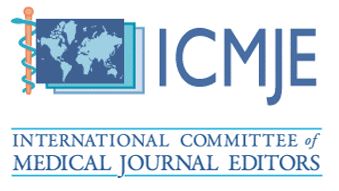Gerstmann-Sträussler-Scheinker Disease: A Case with Unusual Presentation in Association with Anti-GAD Antibodies
Crespo Arizmendi M1, Paviolo J1, Martin MC2, Mercado F1, Raina G1, Pérez Allub V1, Cersósimo MG1, Saguier Padilla I1*
1Servicio de Neurologí a. Hospital de Clí nicas “Jose de San Martí n”. Buenos Aires. Argentina.
2Sanatorio Lobos. Lobos Buenos Aires. Argentina.
*Corresponding Author: Saguier Padilla Ignacio, Servicio de Neurologí a. Hospital de Clí nicas “Jose de San Martí n”. Buenos Aires. Argentina.
https://doi.org/10.58624/SVOANE.2025.06.010
Received: February 11, 2025
Published: April 02, 2025
Citation: Crespo Arizmendi M, Paviolo J, Martin MC, Mercado F, Raina G, Perez Allub V, Cersosimo MG, Saguier Padilla I. Gerstmann-Stra ussler-Scheinker Disease: A Case with Unusual Presentation in Association with Anti-GAD Antibodies. SVOA Neurology 2025, 6:2, 50-54. doi. 10.58624/SVOANE.2025.06.010
Abstract
Introduction: Prion diseases have an incidence of 1/1,000,000. Familial, acquired or sporadic forms are described, the latter being the most frequent. Gerstmann-Stra ussler-Scheinker syndrome (GSS) is a familial variant of prion diseases, whose symptoms usually manifest around the fifth decade of life, with cerebellar ataxia and dementia with a mean disease duration of 49 to 57 months. The most frequent mutation is found in the prion protein gene (PRNP) at residue 102 (P102L). Three families with GSS have been reported in Argentina. We report the fourth family, with an early age of onset.
Clinical Case: A 22-year-old woman who began 2 years earlier with progressive symptoms of emotional lability, mood swings, memory failures, delirious ideas and insomnia. She evolves with gait instability, falls, constipation and speech disorders. In the second year of evolution, she progresses to prostration, global aphasia and pyramidal syndrome. Her father had died at the age of 40 years with neuropsychiatric disorder interpreted as alcoholic cirrhosis by the family, which evolved to death in two years and her 27-year-old brother had cerebellar syndrome of 10 months of evolution. The cerebrospinal fluid study was normal, the electroencephalogram (EEG) showed slowing of background activity and periodic sharp waves, the magnetic resonance imaging (MRI) of the cerebellum was normal. Genetic test showed P102L mutation in the PRNP gene.
Conclusion: GSS is a rare cause of rapidly progressive dementia. Few families with early onset of symptoms have been reported in Argentina.
Keywords: Prion Disease – Gerstmann-Sträussler-Scheinker - Early Onset - Antibodies - Anti GAD - Immune-Mediated Encephalopathies











